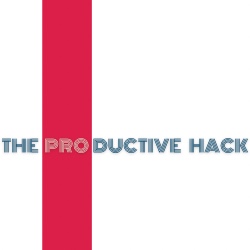11 Effective Time Management Tips and Tools for Individuals with ADHD
- The Productive Hack

- Mar 4, 2023
- 8 min read
Updated: May 5, 2024
Attention Deficit Hyperactivity Disorder (ADHD) is a neurodevelopmental disorder that can affect individuals of all ages. It can impact your ability to concentrate, prioritize tasks, and manage your time effectively. Individuals with ADHD often struggle with task management, meeting deadlines, and the ability to stay organized. However, with the right strategies, individuals with ADHD can learn to do new tasks, manage their time effectively, and ultimately achieve their goals. In this blog post, we will discuss effective time management tips for individuals with ADHD.

Time Management
Time management is essential for individuals with ADHD. It is important to create a schedule that includes breaks as well as sets goals and deadlines. Breaking down tasks into smaller, manageable chunks can also help to prevent feeling overwhelmed. Many adults with ADHD allow themselves to work until exhaustion, which will cause individuals to overload their executive functions. Sticking to a routine and prioritizing tasks can aid in managing time effectively and helping people with ADHD not feel overwhelmed.
1. Make a to-do list
One of the most effective and practical ways to manage your time is to create a to-do list. A to-do list is a list of items that you need to complete for the day, week, or month. Creating a to-do list can help you prioritize your tasks and stay focused. When making your list, it's essential to be realistic about what you can achieve. Start by listing the most important tasks first and breaking them down into smaller, more manageable steps. Make sure to include deadlines and prioritize the specific tasks that need to be completed first. If you plan properly and focus on prioritization over the volume of completed tasks, you will get more accomplished.
Making a master task list helps clear your thoughts, which leaves room for you to focus on high-priority tasks. Preferably, this specific task could be part of your nighttime routine or your morning routine. Also, making a master task list helps clear your thoughts, which leaves room for you to focus on high-priority tasks. Preferably, this specific task could be part of your nighttime routine or your morning routine. Also, making a master task list can help you become more organized and efficient when managing your time.
2. Use a Planner

Using a planner can be an effective way to manage your time. A planner is a tool that helps you stay organized and keep track of your schedule. When using a planner, it's essential to write down important due dates, appointments, and deadlines. A planner can help to keep track of assignments and deadlines. Tasks tend to sneak up on us if we are not planning things out. So, plan. Here's a great planner for individuals with ADHD. It can also be helpful to often check the calendar and prioritize tasks based on urgency, priority level, and importance. You can also use color coding or symbols in a physical planner or digital planner to help you remember what needs to be done in actual time. Refer to your planner frequently to stay on top of your schedule.
3. Set reminders
Setting reminders can be helpful for reminding you of important tasks or appointments. You can use your phone or computer to either check your calendar and set reminders for appointments, deadlines, or tasks. You can also use reminders or a calendar app to break up your day and remind you to take breaks. Setting reminders and scheduling tasks can help you stay on track and ensure that you don't forget important tasks.
4.Use time blocking
Time blocking is a method of scheduling where you block out specific times for activities. For your morning routine, for example, you might block out between 9–10 am for answering emails, 10–11 am for working on a project, and 12–1 pm for lunch. Don't forget to block out time transition time in between task to really optimize your schedule. Time blocking can help you stay focused and make the most of your time. When using time blocking, it's essential to be realistic about how long certain items will take. It's also important to take breaks and allow buffer time for unexpected events.
5. Break tasks into smaller parts
Breaking tasks into smaller, more manageable parts can make them feel less overwhelming. Instead of trying to complete a big project all at once, break it down into smaller steps. This can make the project feel more achievable and help you stay motivated. When breaking tasks down into smaller parts, it's essential to be realistic about your internal abilities for time management and what you can achieve when completing tasks in a timely manner, within a set amount of time, in the same place.
6. Pomodoro Technique
The Pomodoro technique is a widely recognized time management strategy that can significantly boost productivity and help individuals stay focused when working on longer tasks. By breaking down a task into shorter intervals of 25 minutes, known as pomodoros, and taking short breaks in between, individuals can improve their time perception and maintain their focus, thus reducing the likelihood of burnout.
The key idea behind this technique is to work on a task for a set period without any distractions, followed by a brief rest period to recharge before starting the next interval. This approach promotes a sense of accomplishment after completing each pomodoro and helps individuals avoid procrastination and other distractions.
To optimize the Pomodoro technique, individuals can take a more extended break of 15 to 30 minutes after completing four pomodoros. During this time, it's essential to engage in an activity that promotes relaxation, such as meditation, taking a walk, or simply stepping away from the workspace.
Using a timer or app can help individuals stay on track and ensure that they stick to the designated work and break intervals. This approach can be particularly beneficial for those who struggle with time management, distractions, or procrastination. Furthermore, it can be adapted to suit different work styles and tasks, making it a versatile and effective tool for increasing productivity.
7. Eliminate distractions

Distractions can be a significant challenge for individuals with ADHD, especially when studying. To reduce distractions, individuals can create a study space that is quiet and free from distractions such as phones and other electronic devices. It can also be beneficial to use noise-cancelling headphones or listen to calming music to help focus. Breaking up study sessions into shorter intervals can also help prevent boredom and reduce the likelihood of becoming distracted.
Another strategy to reduce distractions is to use a study buddy or accountability partner. This can provide motivation and support, as well as help to stay on task, top priority the task and on track. It is important to choose someone who is reliable and understands the challenges of studying with ADHD.
Distractions can make it difficult to focus and manage your time effectively. Try to eliminate distractions as much of allocate time as possible. This might mean turning off your phone, using analog clocks, closing unnecessary tabs on your computer, or finding a quiet place to work. Your work environment is very important, so creating foolproof places to work can look seemingly trivial but can help your attention span. When working on some of those priorities, it's important to give it your full attention and avoid multitasking.
8. Take breaks
Taking breaks can be helpful in staying focused and avoiding burnout. Plan breaks into your schedule and use them to recharge your batteries and slow things down. The time management gurus always recommend breaks. This might mean taking a walk, doing some stretching, or just sitting quietly for a few minutes. When taking breaks, it's important to set a time limit and avoid getting distracted. This helps renew your cognitive load for your next task.
9. Use technology to your advantage
Technology can be a useful tool for
managing your time. There are many apps and tools available that can help you stay organized, manage your tasks, allocate your time well, and help you stay focused. For scheduling tasks, let's for example think of some apps that can help individuals. You can use apps like Trello, Asana, or Notion to create to-do lists, set reminders, and track your progress. You can also use productivity apps and external tools like Forest or Focus@Will to eliminate distractions and stay focused on your tasks.
10. Prioritize self-care
Self-care is essential for individuals with ADHD. Taking care of your physical and mental health can help you manage your symptoms and improve your time management skills. Prioritize exercise, healthy eating, and getting enough sleep. Consider mindfulness practices like meditation or yoga to help you stay calm and focused. Don't forget to take time for hobbies and activities that you enjoy.
11. Seek support
Another aspect of self-care is seeking support from others. This can include talking to a therapist or a licensed clinical psychologist, joining a support group, or reaching out to friends and family for help. It is important to remember that seeking help is a sign of strength, not weakness.
Having a support system is an essential component of achieving your goals and managing your time effectively. By surrounding yourself with people who encourage and motivate you, you can stay focused and committed to your objectives, which is time management.
A support system can provide you with the tools and resources you need to succeed, such as time management tips, productivity apps, or accountability check-ins. Moreover, sharing your goals and progress with others can help you stay accountable and motivated, as you're more likely to follow through on your commitments when you know that others are watching.
Your support system can include family, friends, coworkers, mentors, or even online communities focused on time management and productivity. It's essential to choose people who share your values and can provide constructive feedback and support.
In addition to providing motivation and resources, a support system can also help you celebrate your successes and learn from your failures. By sharing your experiences with others, you can gain insights and perspectives that can help you improve your time management skills and achieve your goals more efficiently.
Overall, having a support system is a powerful tool that can help you stay on track and achieve your goals. It can provide you with motivation, resources, accountability, and support, making it easier to manage your time effectively and achieve success in all areas of your life.
Managing ADHD can be challenging, but you don't have to do it alone. So, remember it is okay to seek support from family members, friends, or a mental health professional. Join a support group or connect with others who have ADHD. Having a support system can help you stay motivated and provide you with the tools and resources you need to manage your time effectively. It can also help you stay accountable and keep track of your progress.
The Final Word
In conclusion, managing your time with ADHD can be challenging, but there are strategies that can help. By creating a to-do list, using a planner, setting reminders, time blocking, breaking tasks into smaller parts, eliminating distractions, taking breaks, using technology, prioritizing self-care, and seeking support, you can improve your time management skills and achieve your goals. Remember that managing ADHD is a journey, and it's essential to be patient and kind to yourself along the way. With the right strategies and support, you can thrive and succeed.
The most important thing is to remember that managing ADHD is a process and that it takes time. Be patient with yourself, take things one step at a time, and don't give up hope. With the right support and resources, you can learn how to manage your ADHD and lead a successful, fulfilling life.
*This post contains affiliate links, so we may earn a small commission when you make a purchase through links on our site at no additional cost to you.






